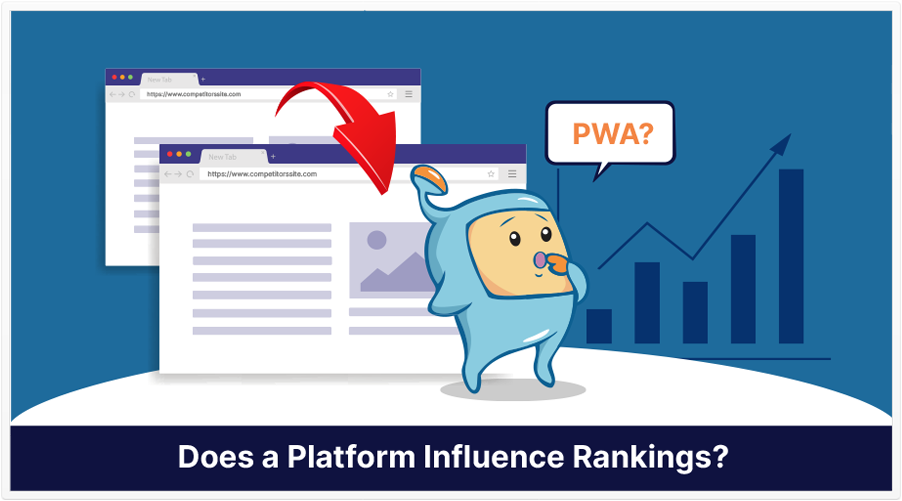
Sites that are based on Progressive Web Apps have more reach than general native apps, and have more of the capabilities of native apps.
At around the 36-minute mark of the English Google SEO Office-Hours From November 12, 2021, someone submitted a question about their situation: basically, one of their competitors had switched the framework, or maybe Content Management System (CMS), of their site to a Progressive Web App.
(This video is queued to the time when the situation/question was addressed.)
The question was:
“Is there any relation or impact upon rankings for websites who have made normal HTML, CSS, and JavaScript and another one with PWA? Just because one of our main competitors has recently adopted it, and we notice a huge jump in their rankings.”
Google Search Advocate John Mueller responded:
“So, these are essentially different ways of making a website, and you can make a website with lots of different frameworks and formats. And for the most part, we see these as normal HTML pages.
“So if it’s a JavaScript-based website, we will render it and then process it like a normal HTML page.
“If it’s HTML already in the beginning, we can do that. The different frameworks and CMSes behind it, usually, we basically ignore that and just say, ‘Well, here’s an HTML page, and we can process it.’”
Site Platforms Don’t Influence Rankings
John continued:
“So, just the fact that one of your competitors has moved from one framework to another and has seen an improvement in search, that framework change, from my point of view, wouldn’t be responsible for that. But rather, maybe they have a newer website now, together with that framework change.
“Maybe the newer website has different internal linking, different content internally, is significantly faster or significantly slower, users really like it, or they did a…marketing campaign together with the website launch.
“All of these things play in there, and these are all things that are not limited to the framework that you’re using.”
My Thoughts
I can understand, and am in agreement with what John said.
Google’s not biased in favor of any one particular website framework or Content Management System (CMS). WordPress, HTML, JavaScript, Wix, Drupal, PWA, and others are all inherently seen neutrally.
That said, there could be inherent features of website frameworks, CMSes, plugins or enhancements that give a site based on such a framework a more appealing user experience.
Or, maybe such plugins or enhancements give a site better SEO metrics.
For example, if your site is based on WordPress, and you have a caching plugin that results in a quicker loading time, you might have a better Page Speed score.
But that improved SEO metric would be due to the plugin (and the proper utilization of it), and not necessarily the CMS (WordPress, in this case).